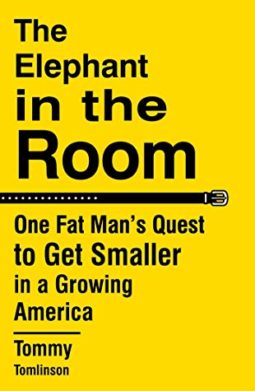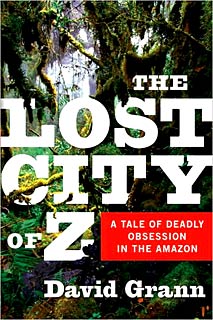This review contains affiliate links, which earn me a small commission when you click and purchase, at no extra cost to you. Thank you for supporting my small business and allowing me to continue providing you a reliable resource for clean book ratings.
It took me six months to get around to reading this memoir of one man’s struggles with his weight — about 450 pounds of it — mainly because I knew it would strike home with me, and I wasn’t in a place for the striking, or perhaps I wasn’t ready for the kind of striking it would provide. But when I read it, I was ready, and it was just right.
Tommy Tomlinson is an accomplished and insightful writer, having worked at the Charlotte Observer for two decades and more recently as a freelancer, covering various topics and writing for well-known outlets such as ESPN. At 50, he faced the death of his older sister, who was also overweight and was taken by MRSA. After an lifetime of being fat, whether it was obese or morbidly obese, events including that loss brought him to not just think about his weight, as he had every single day ever since he could remember, but to consider what changes he actually could make that he might be able to sustain to be healthier and less at risk of serious problems.
Like many others who are obese, Tomlinson had tried plenty of diets. And he’d read plenty about diets and their results, mainly that very few people sustain weight loss. So he decided to simply follow three steps: “1. Find a way to measure the calories you eat and drink. 2. Find a way to measure the calories you burn. 3. Make sure that every day, number one is smaller than number two.”
So, as he relates at the beginning of the book, he buys a FitBit and vows to cut 1,000 calories a day from the number that his body likely needs to survive and maintain its weight. And he will go slowly.
Tomlinson writes month to month about this year of experience (which was 2015). He reflects on his childhood, his teens, his college years and beyond, on his habits, on his feelings, on the fat-shaming he faced and the things he told himself. Rather than phrasing his inner thoughts as “self-talk,” he writes how he uses the name of “USUCK-FM,” which he says was coined by a writing teacher named Chip Scanlan. It’s the voice that says you’re not good enough, that you’re a failure, and so on. He says, “The voice is low and relentless. There are no ads on USUCK-FM and no music. There are only public service announcements. There’s no point. You’ll never make it. Don’t even try.”
And that’s familiar to pretty much anyone. To those of us who are heavy, whether 50 or 250 pounds overweight, shame comes from the inside. And it’s relentless. But late in the book, Tomlinson reveals that he’s found hope, even from that FM signal inside: “One night after another eating binge I lay in bed sleepless… A new voice came into my head. It sounded like me, too. But it wasn’t USUCK-FM. It was trying to help. Why do you do this to yourself? It said. I don’t know, I said. Maybe I want to die. You know that’s not true. Go deeper.” And it went on, a conversation that led him to consider some causes for his self-sabotage, and in turn some ways he could work on fighting that sabotage.
The year that Tomlinson documents is one full of challenges and stresses, things that could easily have knocked him completely off his goal, but he perseveres. He by no means sticks to a completely healthy regimen or exercises a great deal. He still eats sweets and fast food and has times of gorging. But he sees slow progress and signs that he is improving.
I found this book to be absolutely real, Tomlinson’s voice candid and forthright about his weaknesses and battles but also revealing as he does make slow progress, both in his thinking and in his health. He does what he sets out to do: he loses weight, very slowly but steadily, and he changes his thoughts and thus his behavior. It’s inspirational but not in a typical diet-story way. There are no magic fixes; there is no “big reveal” of a huge weight loss. Not even after two years. It’s slow and steady, and the best way to lose weight and keep it off in the long term. But that makes it all the more readable and relatable — and helpful for others who feel inclined to follow in some way in his footsteps. A fine book and one I’ll want to return to.
Rated: High, for right around 10 instances of strong language and about the same number of moderate obscenities. There are some references to sex but nothing detailed.
* I received an ARC of this book in exchange for my honest review.
Click here to purchase your copy of The Elephant in the Room on Amazon.




